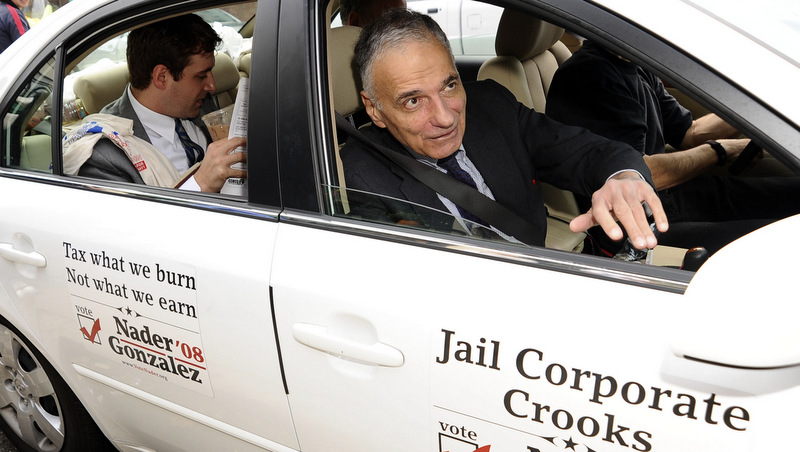
The AFL-CIO, in a 2012 survey of chief executive wages, found that the average CEO in the United States was compensated 354 times what the average worker received — the highest level of wage disparity among all of the nations the AFL-CIO examined. At a time when the real value on employee pay is on the decline, the idea that Lawrence Ellison, CEO of Oracle Corp., made $96 million in 2012 frustrates many concerned by the growing wealth gap.
Five-time presidential candidate and noted consumer advocate Ralph Nader is seeking to address this issue. Nader, author of “Unsafe At Any Speed” — which, in 1965, launched a drive to introduce automotive safety standards — is seeking to create a citizen’s movement to bring accountability to the way major multinationals accrue their profits. Executive pay and corporate profit hoarding are the first issues on the agenda for Nader’s Penny Brigade.
Typically, most of the major companies’ CEOs have a nominal “standard pay.” This ranges from $1 to several million dollars. However, these CEOs also often receive “incentive pay” meant to serve as both a retention bonus and as a performance bonus. This “incentive pay” usually comes in the form of shares of company stock. These bonuses can reach values of tens of millions of dollars, but the problem is that the CEO receives the bonus even if his or her company underperforms.
An example of this came from American International Group in 2008. After posting losses of $61.7 billion, the most for any corporation in history, and accepting an $85 billion secured credit facility from the Federal Reserve to prevent AIG’s collapse, the company announced the payment of $165 million in executive bonuses, $450 million for the financial unit and total company bonuses up to $1.2 billion. Outsiders saw this as a blatant money-grab in defiance of the company’s shareholders at a time when the company should have been showing restraint.
Nader started his Penny Brigade crusade a few years ago, when he noticed that Cisco had $45 billion in liquid assets that was not being returned to the shareholders. In an aborted attempt to create a watchdog group for Cisco, Nader asked shareholders to donate one penny for every share that they own.
Nader has since taken his so-called Penny Brigade and expanded it, offering it as a watchdog for all multinationals. Nader — who donated $50,000, or one-hundredth of his net worth, to the effort — is seeking to find one shareholder from each of the S&P 500 companies to donate a penny per share of stock in the company he or she owns.
“Corporations are not delivering a standard of living to billions of people commensurate with the people’s economic and political power. When there’s a gap between their power and their responsibility to deliver, that’s the way you want to measure them. That’s a yardstick they cannot deny,” Nader told BBC Capital. “You have a Wal-Mart mentality here that does not augur for the kind of distribution of wealth that promotes economic growth. That’s even before we talk about the environmental responsibilities of corporations.”
Nader has targeted Monsanto, an agricultural biotechnology corporation, and tech giant Google as two early targets for his initiative. Nader argues that Monsanto is acting recklessly and without adequate controls and limitations in regards to their genetic manipulations, and Nader feels that Google’s drive for increased sales and market share is becoming justification for the company to violate privacy boundaries.

